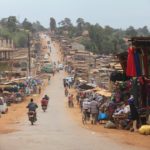 A common refrain is that the poorest members of society are the least politically engaged, with this lack of engagement often exacerbating their situation by making politicians less likely to accurately and effectively represent them.
A common refrain is that the poorest members of society are the least politically engaged, with this lack of engagement often exacerbating their situation by making politicians less likely to accurately and effectively represent them.
Recent MIT research paints a slightly different picture, at least for the 1 billion or so urban poor around the world. Indeed, the research found that the urban poor doesn’t tend to participate less, whether in politics, in labor markets, or in social activities.
Political engagement
The research focuses on Indonesia and tracks 30,000 people over 20 years. The analysis reveals a shared urban political culture that is considerably more subtle than we previously thought. If this population is more engaged than we previously thought, it could have a significant impact on the policies designed to support them, which given the rapid growth in urban populations is crucial for the wellbeing of so many.
“The common narrative is that when you move to a slum, there is less access to good services, and it’s harder to get good jobs, which leads to even less social mobility,” the author says. “This poverty trap story also suggests that under such conditions, where people don’t see much public service because the government is spending more time in places better off, marginalized citizens don’t have as much incentive to vote and demand better services.”
The research examined the Indonesian Family Life Survey from 1993 to 2014, which provided insight into things such as housing conditions as well as social and political outcomes. The analysis reveals that families often move regularly between formal and unregulated housing, but despite this are far from marginalized.
“They are more ordinary than we might have thought, being active in labor markets, and are as socially engaged in their communities as people in good housing,” the author notes.
The ability of the urban poor to not only be politically engaged but also to cooperate across religions and ethnic differences will hopefully better ensure that they are better represented by the government and reached by aid agencies.